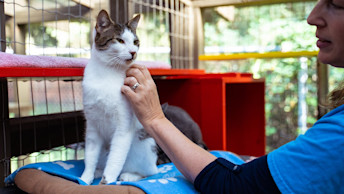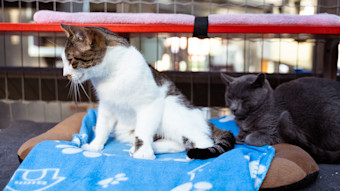July 29, 2025
How to Volunteer at an Animal Shelter

Volunteering at an animal shelter is a deeply rewarding experience. Not only do you get to help animals in need, but you also become part of a community that shares your passion for animal welfare. Whether you’re curious about how to get started, the requirements, or what you’ll be doing, this guide covers all the basics to help you begin your volunteering journey.
Why Volunteer at an Animal Shelter?
Animal shelters rely heavily on volunteers to support their mission. As a volunteer, you can:
Provide care and comfort to animals waiting for their forever homes.
Gain experience in animal handling, care, and advocacy.
Meet like-minded individuals who share your passion for animals.
Make a tangible impact on the lives of abandoned, injured, or homeless animals.
Getting Started: Steps to Volunteer
1. Research Local Shelters
Begin by identifying animal shelters in your area. Check their websites for volunteer opportunities and requirements.
2. Understand the Requirements
Age Restrictions: Many shelters require volunteers to be at least 16 years old. If you’re between 16 and 18, parental consent might be necessary. Younger volunteers may need to be accompanied by a guardian.
Time Commitment: Shelters often request a minimum commitment, such as two hours per week for six months, to ensure consistency for the animals.
Background Checks: For certain roles, such as fostering or handling sensitive information, you might need to pass a background check.
3. Attend an Orientation
Most shelters provide an orientation to familiarize you with their mission, safety procedures, and volunteer roles.
4. Training and Placement
Depending on the role you choose, you might need additional training. Roles like dog walking, cat socialization, or assisting with adoptions often require specific skills, which shelters will help you develop.

Roles You Can Take On
Volunteering at an animal shelter involves more than just interacting with animals. Here are some common roles:
Animal Care: Feeding, grooming, and socializing animals to improve their adoptability.
Dog Walking and Exercise: Ensuring dogs get regular exercise and mental stimulation.
Event Support: Helping with fundraising events, adoption drives, and public outreach.
Administrative Tasks: Assisting with paperwork, answering inquiries, or managing social media.
Fostering: Temporarily caring for animals in your home.
At What Age Can You Volunteer at an Animal Shelter?
Age requirements vary by shelter, but generally:
16 and Up: Can volunteer independently with parental consent.
Under 16: Often required to volunteer alongside a parent or guardian. Some shelters offer youth programs tailored to younger volunteers.
Tips for a Successful Volunteer Experience
Be Consistent: Regular attendance helps build trust with staff and animals.
Communicate: If you’re unable to attend a shift, notify the shelter in advance.
Follow Guidelines: Always adhere to safety and handling procedures to protect both yourself and the animals.
Stay Positive: Some days may be emotionally challenging, but your efforts make a difference.
Ask Questions: Don’t hesitate to seek guidance from staff if you’re unsure about a task.
Making a Lasting Impact
Volunteering at an animal shelter isn’t just about the time you spend there—it’s about the lives you touch. From helping a nervous dog learn to trust again to assisting a family in finding their perfect pet, your contributions leave a lasting imprint.
Ready to Get Involved?
Now that you know how to volunteer at an animal shelter, it’s time to take the first step. Reach out to a local shelter, attend an orientation, and start making a difference. Whether you’re walking dogs, cleaning kennels, or helping with adoptions, your time and effort are invaluable to the animals and the organization.


